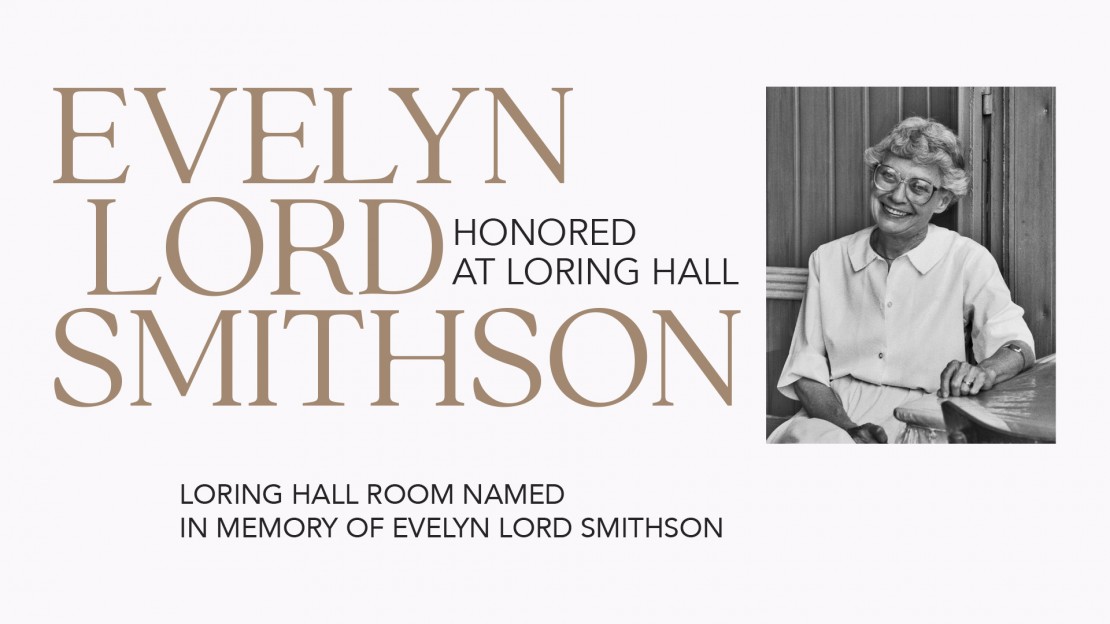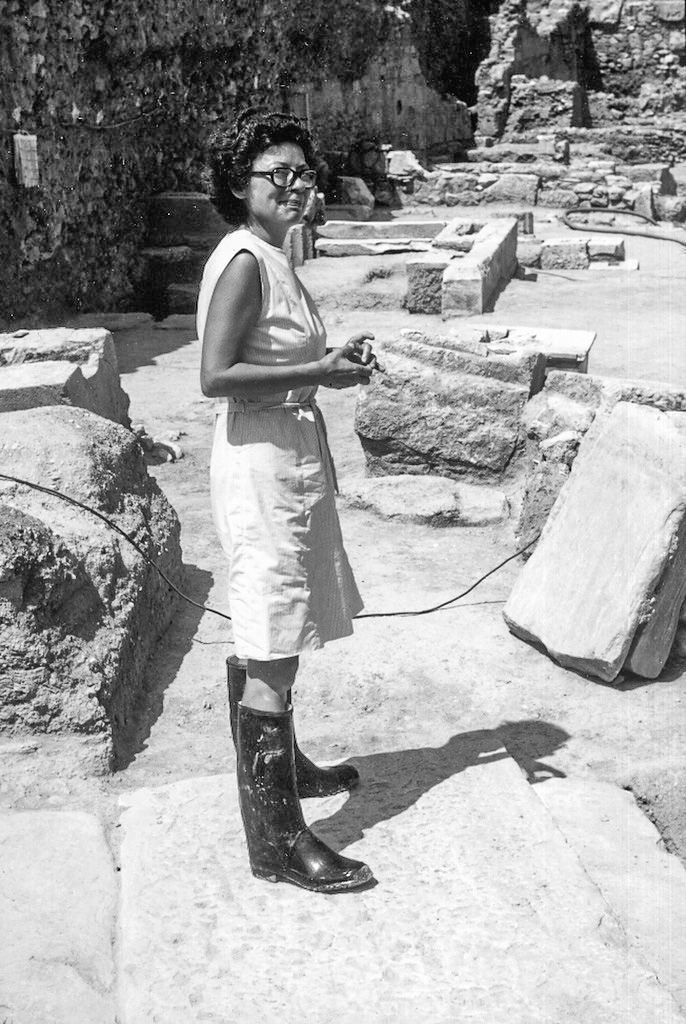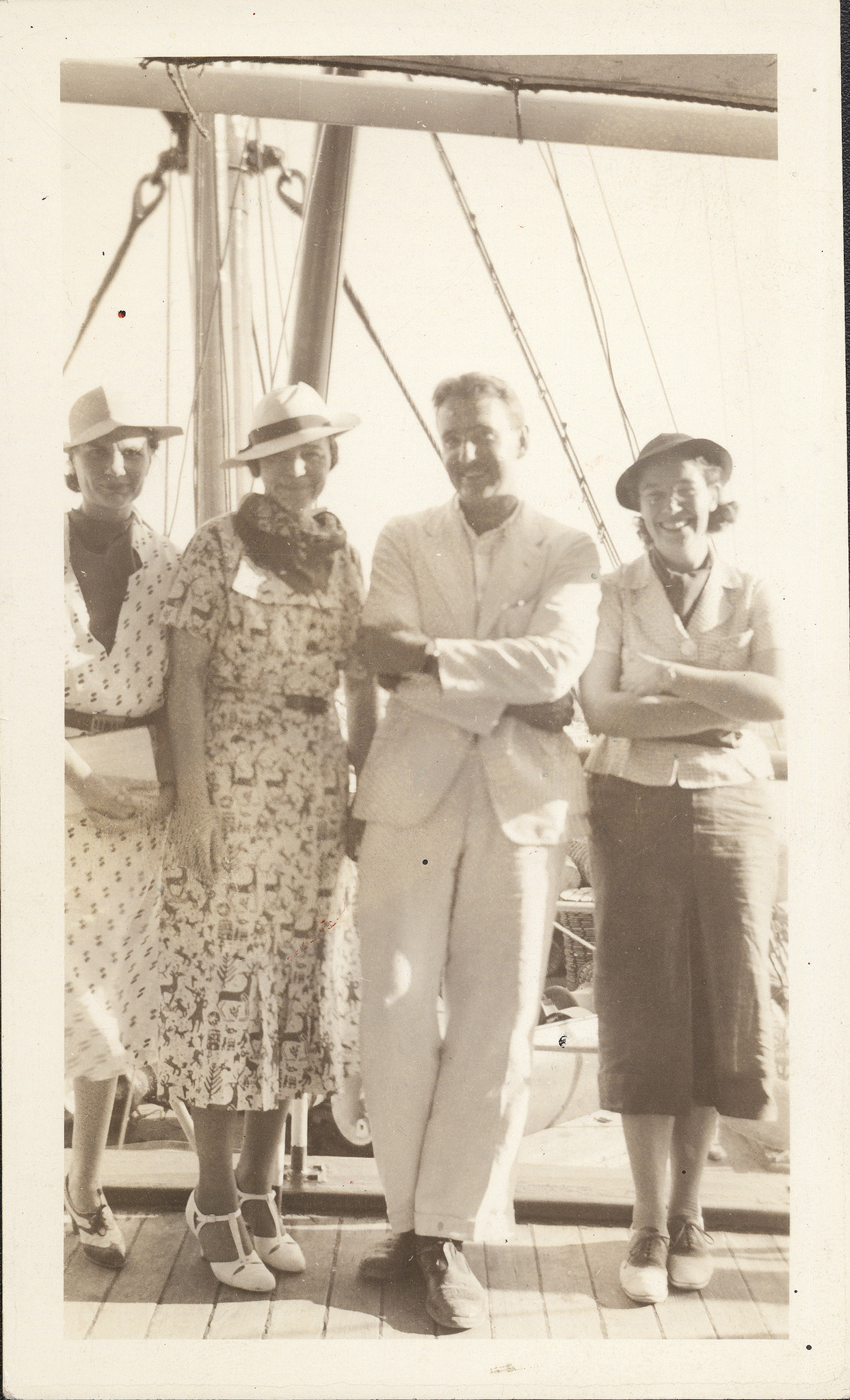
Evelyn Lord Smithson Honored With Room in Loring Hall
The American School of Classical Studies at Athens is pleased to announce the dedication of a room in Loring Hall in memory of Evelyn Lord Smithson. This initiative was spearheaded by Susan Rotroff, the Jarvis Thurston and Mona Van Duyn Professor Emerita at Washington University in Saint Louis, in collaboration with a group of colleagues and friends of Evelyn.
Evelyn Lord Smithson, a former professor of classics at the State University of New York at Buffalo and a noted archaeologist specializing in Greece during the Homeric age, left a lasting impact on the field. For more than 40 years, she dedicated her summers to the American School, actively participating in excavations at the Ancient Agora. Over a span of three decades, starting in 1960, she shared her extensive knowledge and passion for Athenian history, archaeology, and topography through regular lectures during the Summer Sessions.

In recalling Smithson, Susan Rotroff said, " Evelyn provided a perfect role model for me when I arrived at the Agora as a raw graduate student: a female scholar wise in the ways of pottery and deeply involved in plumbing its mysteries, meticulous, patient, respectful of the material even in its most modest forms. At the same time, she had a unique sense of humor and the ability to appreciate the incongruities of life on the excavation and in academia. Her attachment to the School and the Agora was deep and sincere, and seemed to me to cry out for some material monument; what better than a room to shelter future scholars in the institution she loved and that had sheltered her? She was just a fine person who should not be forgotten.”
John K. Papadopoulos, Director, Athenian Agora Excavations remembers Smithson fondly and said, “Behind the name inscribed on the scholarly writings was sensitivity, good humor, and generosity: a heart of gold. She had an open-mindedness, always willing and eager to listen, to learn, and to try something new. She looked beyond the object in hand and focused on the individual, the person, behind the remains preserved in the archaeological record. And she had that habit, that ability, to cast light on what is often referred to as a dark passage in Greek history. Evelyn Smithson lived and worked quietly and modestly. Her personality—her humanity—was pervaded by humility and love for Greece, both ancient and modern. She was, and will always remain, a philhellene.”
About Evelyn Lord Smithson
Evelyn Lord Smithson was born on July 19, 1923, in Indiana and grew up on the west coast of the United States. She was educated at the University of Washington (B.A. 1944) and at Bryn Mawr College (A.M. 1946, Ph.D. 1956). As a student she held various fellowships at Bryn Mawr and Radcliffe Colleges, followed by a fellowship at the State University of New York at Buffalo; she also held a Fulbright Scholarship and an Agora Fellowship. Evelyn Smithson began her teaching career as a Teaching Assistant in Classical Archaeology at Bryn Mawr (1950-1951) and subsequently pursued a decade-long research assistantship at the Institute for Advanced Study (1951-1962). Her professional association with the State University of New York at Buffalo began in 1962 when she was appointed Assistant Professor; she was promoted to Associate Professor in 1969, a position she held until her untimely death in March 1992.
Her association with Athens began in 1948-1949 when she was a student at the American School. It was during this first visit to Athens that she excavated in the Athenian Agora and dug her first Late Geometric grave. Soon after, she began her study of the Submycenaean through Middle Geometric pottery from grave and well deposits from the area of the later Athenian Agora. She planned a three-volume work to be published in the Athenian Agora series, but did not live to complete the magnum opus, which she often referred to as her "life's work." (Source: John K. Papadopoulos, “Evelyn Lord Smithson, 1923-1992.” American Journal of Archaeology 98 (1994): 563–64. http://www.jstor.org/stable/506443.)
To learn more about how to name a space in Loring Hall, please contact Nancy Savaides, Director of Stewardship and Engagement, at nsavaides@ascsa.org or 609-454-6810. Naming opportunities for a variety of spaces are still available. Donors can choose from a wide range of gift levels to name a room or area in honor of themselves, an American School scholar, or a family member, friend, or group.
Please click the links below to view the nameable spaces and options that remain:

Alison Frantz, Lucy Talcott, Rodney Young, Constance Curry in Attica, 1934-35 - Richard H Howland